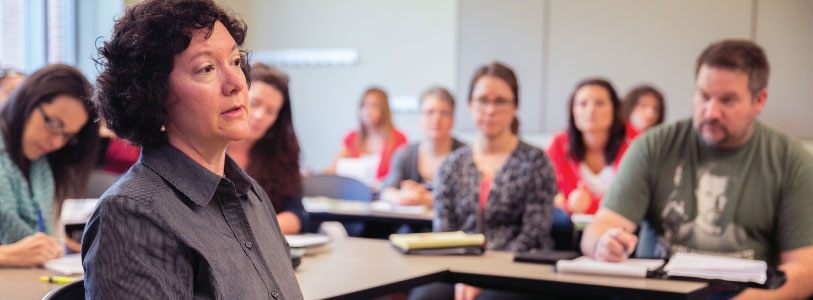
The Agapé Center desires to serve as a liaison between faculty members and community partners in order to serve as co-educators to provide holistic learning opportunities for students and to encourage students toward an ethic of discipleship, service and civic engagement.
There are numerous ways in which service-learning and community engagement might be integrated into a course. Factors, including the size of the class, community project availability and need, preparation of students and desired learning outcomes of the class, impact the type of service or community engagement that would be ideal for a respective course.
Faculty members might choose to meet a course objective by having the entire class participate in a one-time service project (i.e. CCC courses participate in Service Day). Arrangements for service projects should be made prior to the semester and should be included in the syllabus. This model is ideal for faculty and peer interaction because a common service experience is shared.
Faculty members may wish to begin service-learning and community engagement with a pilot project. In this design, students may have the option to become involved in the community-based project. A portion of the normal coursework is substituted by the community-based component (i.e., a research paper or group project can be replaced with an experiential research paper or personal journal that documents learning from the service experience).
As part of the Experiential Learning Initiative (ELI), all Messiah University students are expected to complete a minimum of one ELI-approved experience prior to graduation. Service-Learning courses which have a minimum of 10 hours of content, 20 hours of service and 10 hours of reflection outside of the classroom qualify to become an ELI-approved experience, should a faculty member go through the approval process.
Advantages of an ELI-SL approved course are numerous. Not only are students prepared to articulate their “Messiah story” in a way that is meaningful to prospective employers and their communities, but faculty have an easier time designing coursework (i.e., class discussions, writing assignments, exam questions, etc.) that integrates the service experience with course objectives.
Community engagement offers a means to build upon students’ cumulative knowledge in a specific discipline and to demonstrate the integration of that knowledge with real life issues. Upper class students can be challenged to explore ways their disciplinary expertise and competencies translate into addressing community needs.
A growing field and opportunity for faculty lies in community based research (CBR). CBR begins with a research topic of practical relevance to the community (as opposed to an individual scholar) and is carried out by students and faculty within the community setting. CBR is collaborative, such that community member and research share the control of the research agenda, design, implementation and dissemination equally. Such projects are time-consuming and may involve more than one community partner carried over the course of more than one semester. Such projects have a cumulative impact on student learning and community development and may be best suited to course clusters or learning communities across disciplines.
No matter how you choose to integrate service and community engagement into your course(s), the Agapé Center is here to act as a resource, providing logistical support, workshops, grant, publishing and conference opportunities, best practices in reflection, assessment, and more!
For more information, email the Agapé Center at agapecenter@messiah.edu.